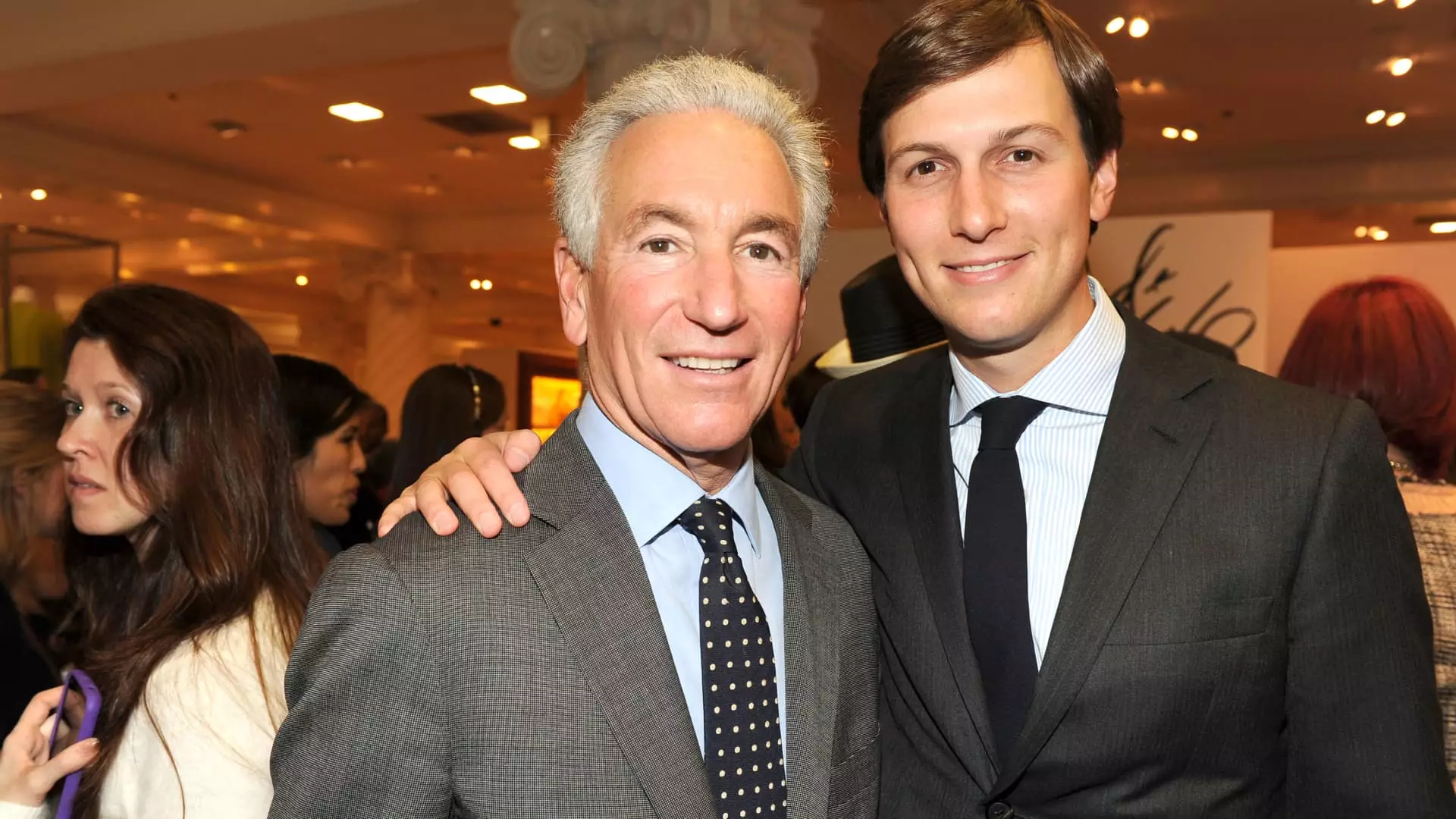The suggestion that Charles Kushner, a prominent real estate mogul and the father of former senior adviser Jared Kushner, could be appointed as the ambassador to France by President-elect Donald Trump raises significant ethical and political questions. This potential nomination underscores the intertwining of personal relationships and public service, a trend that has characterized much of Trump’s presidency. While Trump described Kushner as a “tremendous business leader, philanthropist, & dealmaker,” Kushner’s past is marred by serious criminal convictions, which warrants a critical examination of his suitability for the role.
Charles Kushner is not just a name in real estate; he is the founder of Kushner Companies, a firm that has played a significant role in shaping New Jersey’s skyline. However, this business success is overshadowed by a tumultuous legal history. In 2005, he pleaded guilty to 18 felony counts, including tax evasion and witness tampering, which arose from a deeply troubling incident involving family betrayal and revenge. This scandal not only tarnished his reputation but also serves as a cautionary tale about the potential for abuse of power within influential families.
The events surrounding Kushner’s legal troubles are particularly alarming. After learning that his brother-in-law was cooperating with federal investigators, he orchestrated an elaborate revenge scheme, which involved using a prostitute to create a damaging video. This act of intimidation not only ruined lives but was described by former federal prosecutor Chris Christie as “one of the most loathsome, disgusting crimes” he had encountered during his tenure. Such descriptions paint a picture of a man whose morality is questionable at best, a trait that is critical for anyone representing the United States on an international stage.
The prospect of Kushner serving as ambassador signifies a troubling trend where personal ties and familial connections trump qualifications and ethical considerations. This potential appointment could be seen as an extension of loyalty over capability, raising questions about the standards for diplomatic positions that should ideally be based on experience, knowledge, and integrity.
Furthermore, it reflects the broader context of Trump’s administration, which has often been criticized for blurring the lines between personal relationships and governmental responsibilities. The image of America is shaped not just by policy but also by the individuals who represent it. A person with such a controversial background could damage the nation’s standing abroad, risking relationships with allies and impacting diplomatic negotiations.
Ultimately, the nomination of Charles Kushner as ambassador to France holds profound implications not just for U.S. diplomacy, but also for the integrity of public service. As political landscapes continue to evolve, the intersections of personal affairs and professional roles demand scrutiny. The American public deserves representatives who exemplify ethical standards, capability, and a commitment to serving the nation without the shadows of past misdeeds. President-elect Trump’s decision will not only reflect his priorities but could also serve as a litmus test for the values of his administration moving forward.

Leave a Reply